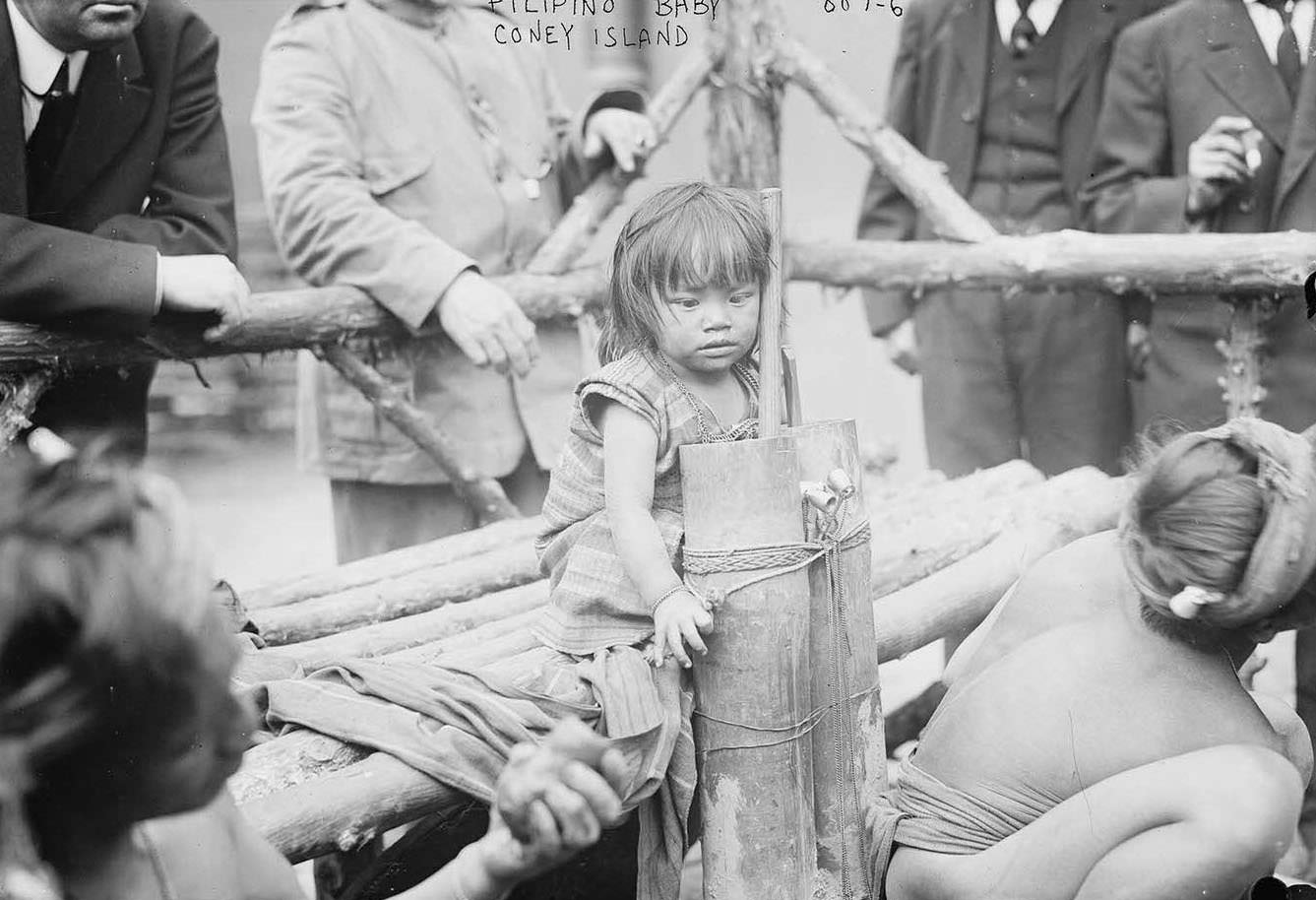In 1906, a young Filipino girl was brought to Coney Island, New York, to be part of an “exhibit” meant to showcase the world’s so-called “exotic” cultures. This exhibit, known as “The World in Miniature,” was located in Luna Park and included various displays of people from different parts of the world, including a young girl put on display on a wooden bench.

The girl, whose name is unknown, was one of the many indigenous people taken from their homelands and displayed in exhibits such as this. They were often treated like objects, with little regard for their dignity or fundamental human rights. They were forced to perform for the entertainment of the crowds, and their cultures and customs were often misrepresented or sensationalized. She was far from home, surrounded by strangers who looked at her as curious. She was dressed in traditional clothing and made to sit on a bench for hours, with no understanding of what was happening around her.
The “exhibit” was meant to attract crowds and make money for its organizers, but it came at a significant cost to those on display. They were often subjected to harsh conditions, with little regard for their health or well-being. Many of them fell ill and died as a result of their treatment.
There were human zoos that also existed during the late 19th and early 20th centuries. People from colonized or exoticized cultures were put on display in public exhibitions, often in cages or other enclosures, for the amusement of Western audiences. These exhibits were often called “ethnological shows” or “human zoos” and were promoted to showcase the “exotic other” and promote colonialism and imperialism.
The young Filipino zoo girl was just one of many victims of this practice. Similar exhibits were held throughout the United States and Europe, showcasing people from Africa, Asia, and other parts of the world. The practice was finally abolished in the mid-twentieth century, but the damage had already been done.
Today, we look back at these exhibits with horror and shame. We recognize the profound injustice done to these individuals and strive to learn from our past mistakes. We realize that everyone, regardless of race or nationality, has inherent dignity and worth, and we must always treat others with respect and compassion.


